Watching a Noah Baumbach picture is like watching a tennis match. It shouldn’t be interesting, it’s very repetitious, but there’s something in the way each serve and hit is different from the last that keeps your eye moving and your head swivelling back and forth from each volley and backhand, down to the final point. Baumbach films are tense, stressful, real, rich, and yet overbearingly superficial, but in the best way possible. So, with the upcoming release of Marriage Story on Netflix and having seen 8 of Baumbach’s 10 narrative feature films, read our ranking below.
8) Frances Ha
This pick will be surely be a polarizing one as many believe Frances Ha to be Baumbach’s masterpiece, but unfortunately, it simply didn’t connect. Watching this film, it’s difficult to ascertain whether Greta Gerwig is a terrible or wonderful actress, as her performance comes across so stilted and awkward its either a cringe-worthy attempt at relate-ability, or a genius representation of the person we all try not to be, but all end up playing the part of once and a while.

Perhaps what was the strangest about Frances Ha was seeing it amongst the remainder of Baumbach’s filmography. Baumbach famously flies from scene to scene with ease, using quips, one-liners, punchy New-York references and literary ponderings to transition as smoothly from moment to moment as his characters do from topic to topic. Here, however, Baumbach’s flow is as clunky as a broken truck, each scene screeching along to a conclusion.
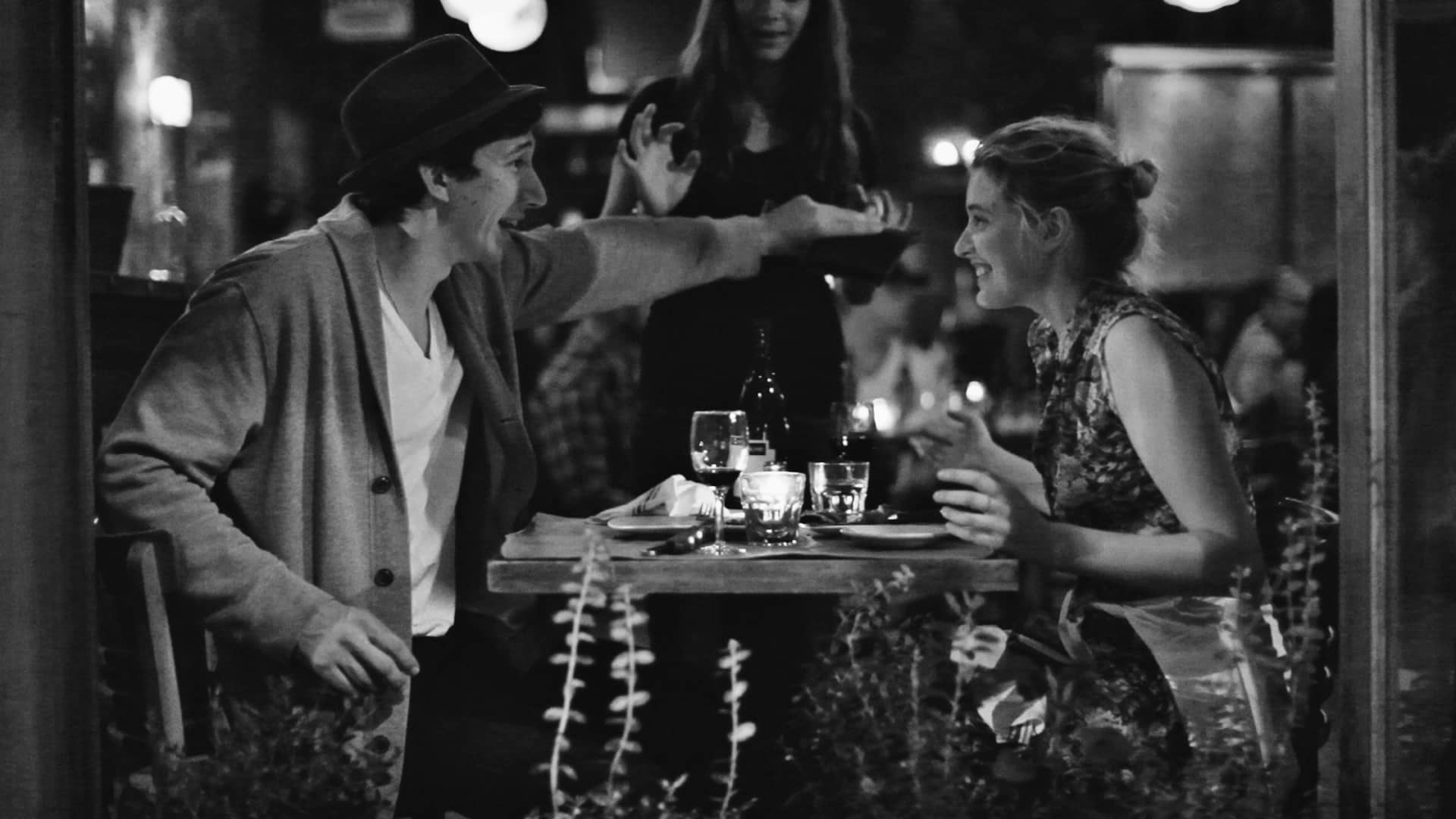
In addition, Frances Ha is one of the most unlikeable characters to be put on screen. Not that it makes her a bad character, in fact she’s remarkably well written because of that fact, but at the same time, the film centres around her, and when you dislike a character as much as Frances, it becomes hard after a while, to relate at all to her. When relation is lost, especially in a film as character centric as this, you lose the film.
7) Greenberg
To get it out of the way, this film has the same issue as Frances Ha regarding the likability of its protagonist, though this time Ben Stiller bringing that issue to light. This film did set straight any misconception of Gerwig’s talent however, as she shines here, and allows the audience an in to this very inaccessible film.
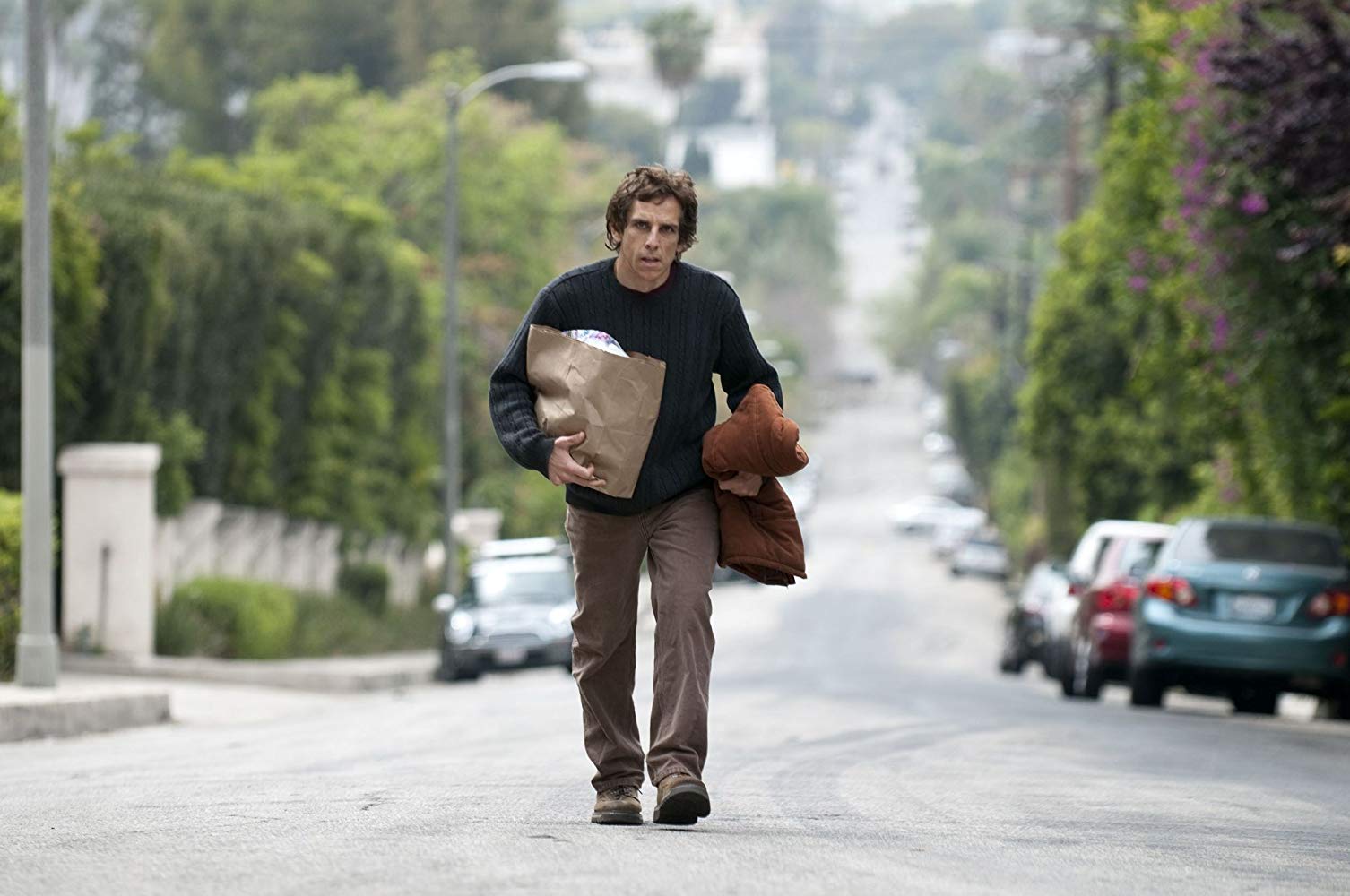
The lead character of Roger Greenberg (Ben Stiller) is socially awkward, and very hard to relate to, but unlike Frances Ha, the world he inhabits is far more inviting, and therefore far easier to enjoy. The dialogue eases up here as well, making scenes a little more joyful and far more playful than before. The cinematography is lovely, the acting from Stiller was wonderful, and there’s really nothing “wrong with itâ€. The film yet again, simply doesn’t connect, given a poorly constructed protagonist that shuts the audience out.
6) Mr. Jealousy
Mr. Jealousy is perhaps the most man-centric Baumbach gets. Especially in the 90’s, near the beginning of his career, many of his works had the same boys club, pseudo intellectual pedantic tone to them, even when none of the content matched. This film is the closest it gets to the content matching. The storyline is interesting, but frustrating, as again, the lead shuts the audience out in terms of relate-ability. However, here it is smoothed over by an absolutely charming performance from Eric Stolz and a formidable addition of Chris Eigeman.
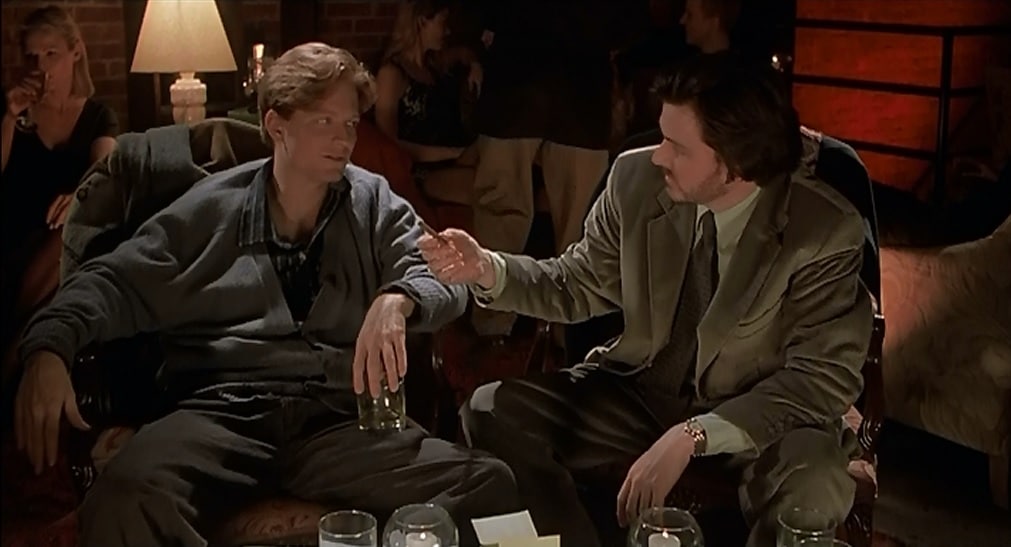
The narration also suits Baumbach’s style so much that it’s a shame its not used by him more often. It makes the film feel more like a book than a picture, which really is a common feeling of many of Baumbach’s films. This was especially the case given his pension for quoting literature both through his dialogue and title-cards at the beginnings of his films. It’s a lovely film, but, to paraphrase Bernard from The Squid and the Whale, “Minor Baumbachâ€.
5) While We’re Young
While We’re Young is likely Baumbach’s most accessible film generally speaking. It has all the makings of a rather generic romantic comedy, which it really is when you boil it down, but with so much charm injected into every frame and line of dialogue, that you can’t help but love. Stiller and Driver steal the show here, giving contrastingly perfect performances for their characters. To Stiller’s disservice, he’s just playing Ben Stiller delivering Baumbach dialogue at breakneck speed, but to Stiller’s benefit, he’s very good at playing Ben Stiller delivering Baumbach Dialogue at breakneck speed. Driver, on the other hand, continues to impress, in another turn in a Baumbach film that defies his usual sturdy type, for a flamboyant and constantly moving hipster.
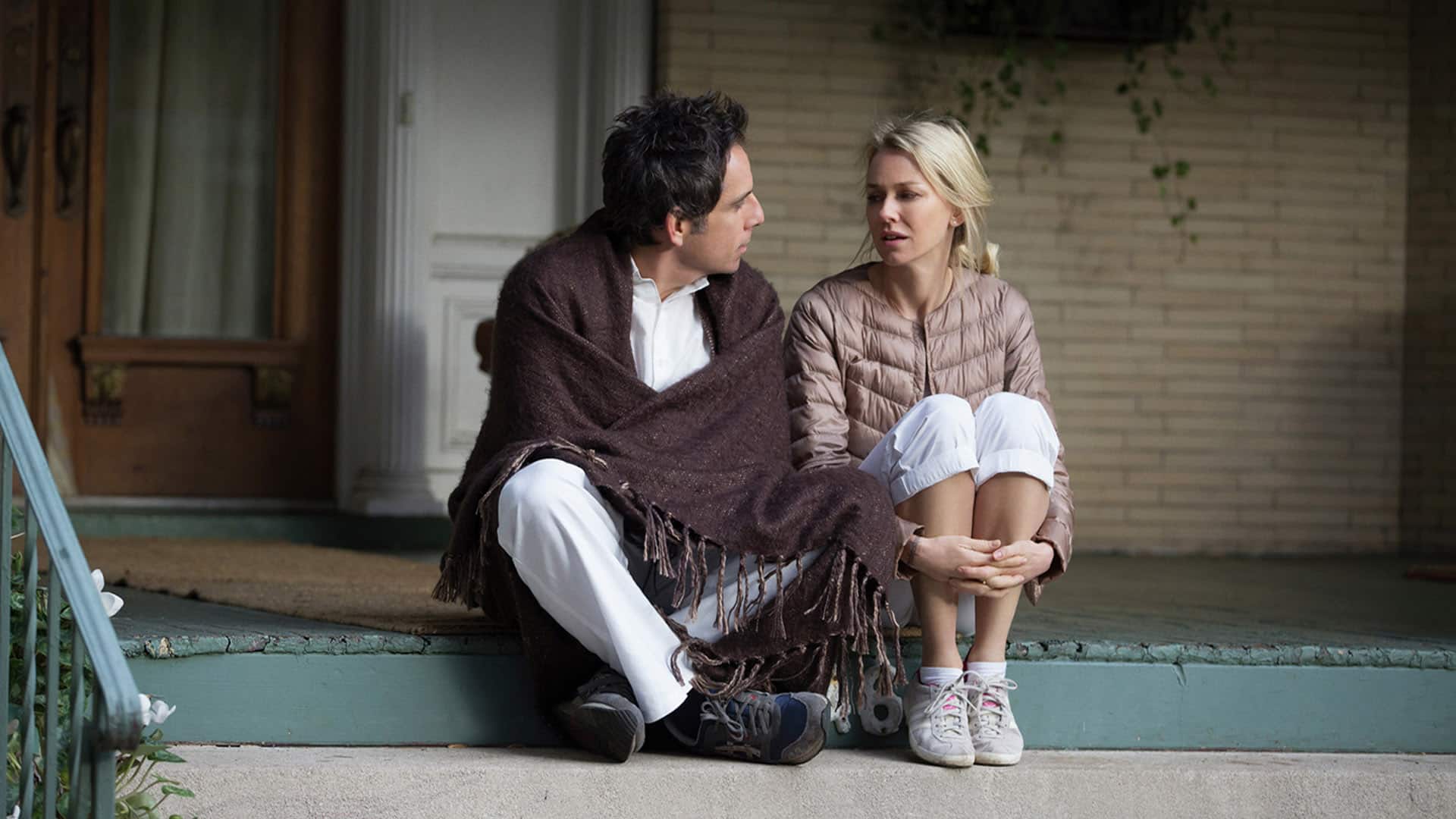
The cinematography is a little more flat that a usual Baumbach film, looking almost digital at times, despite being shot on 35. Most of his other films utilize film to its fullest extent, draining every last bit of grain and colour onto the final print, but this feels rather empty when it comes to its colour and look. It’s lucky for Baumbach he can dig himself out of that hole with fun montages and clever writing.
4) Kicking And Screaming
Kicking and Screaming is a very 1990’s film. It’s got flannels, it’s got dark moody bar-rooms and practical lighting. It’s got men sitting on school steps reading paperback novels who’s covers are bent round to the front and men holding half-drunk brown beer bottles in ill-fitting suits obscured by cigarette smoke in parties that blast dad-rock. Its charming because of all this, but it’s also a little amusing.
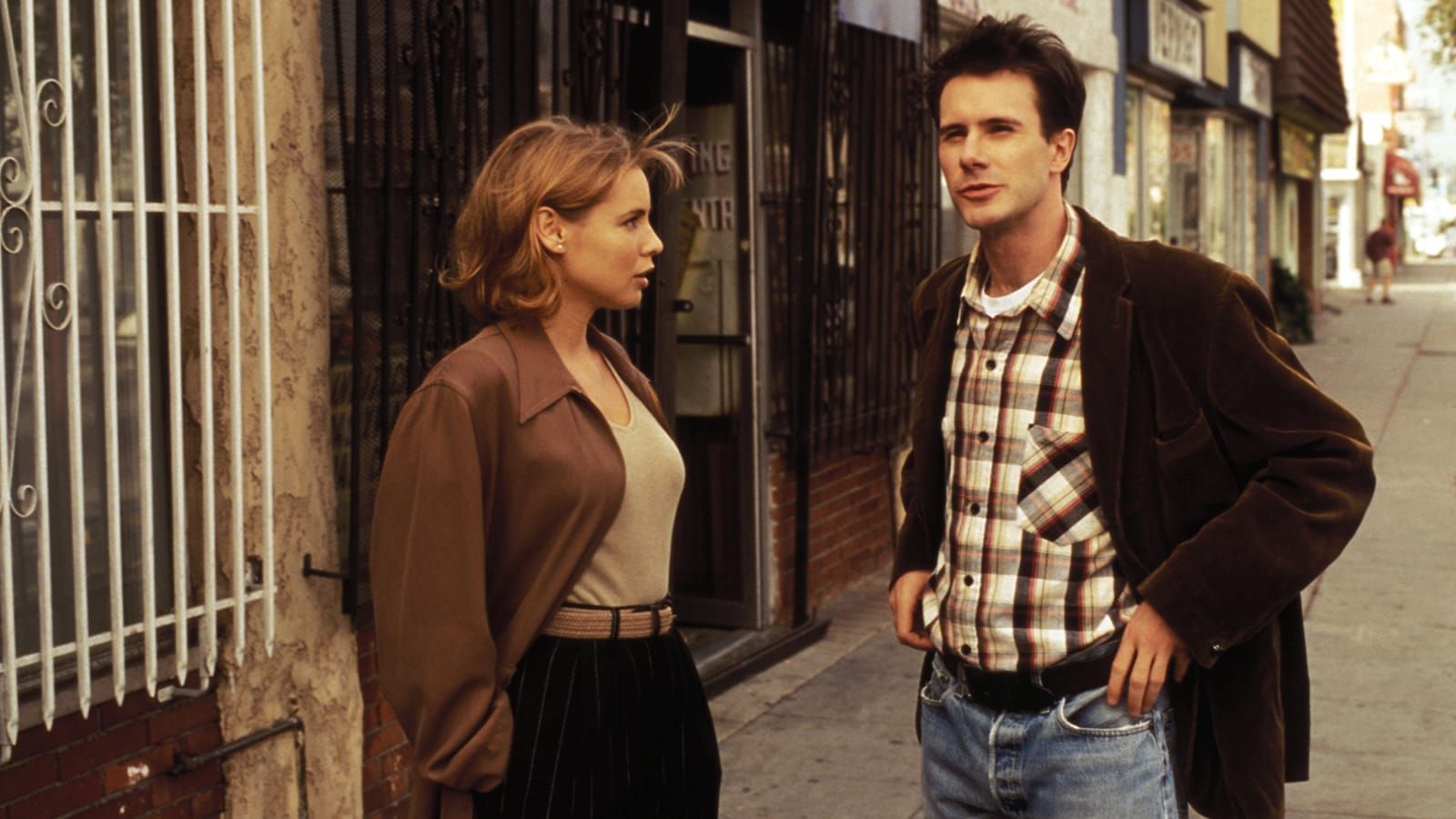
Kicking And Screaming is a basic love story that Baumbach here elevates with some incredible writing, some of his cleverest for sure. To some it might be a little too cute, but what can you expect from Wes Anderson’s co-writer. Its music through voices, and the aforementioned atmosphere calls back to a time of wooden bar tables and peanuts left in trays – it’s nostalgic and warm and inviting. It feels and looks like a fall day, and it’s absolutely winning.
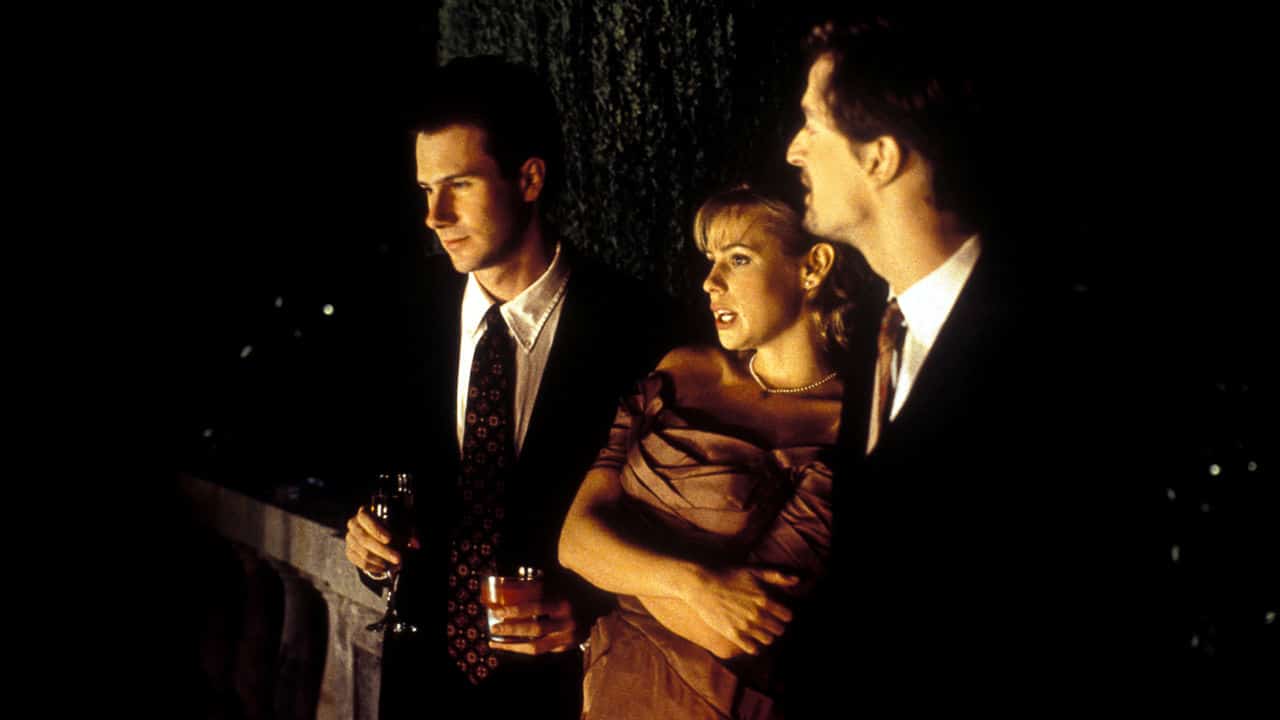
In the end, you can’t help but be pulled into the lives of theses characters and the performance absolutely help pull this off. Josh Hamilton and Chris Eigeman shine here as Grover and Max, and though both play unlikeable characters, they pull them off well, due to their accessible and relatable natures, their flaws feel human, and lived in. You can see into who they are, past the facade they put on to appear intellectual and devil-may-care.
3) The Squid And The Whale
The Squid And The Whale is Baumbach’s most pretentious film, his most autobiographical film, and his hardest to watch film. It is nearly perfect because of all of this. The characters are all entirely flawed, some of them such as Bernard (Jeff Daniels)are just bad people the entire time. Unlike Frances Ha, however, you need to keep watching, as travesty after travesty occur on screen, leading to a ballet of familial pain, and domestic horror.

The film is beautiful to look at, it’s colours are rich and dense, the grain a wonderful complement, yet also a contrast to the film. Like Kicking And Screaming, the film looks home-ey, while at the same time the performances and dialogue try to rip that feeling away from you – making you feel at times quite like the kids in the film, which given the autobiographical nature of this film, is certainly the intention. This film, also, has the one of the best opening scenes in recent memory. It sets up each character, their relationship with the other on-screen characters, and the main drama in under 2 minutes, all through a single game of tennis.
2) The Meyerowitz Stories (New And Selected)
This is Baumbach at his most New-York-ey if that makes sense. The film feels as hectic, busy, crowded and loud as New York City does, but in a very different way. All it takes is 30 seconds of Adam Sandler looking for a parking spot, or Dustin Hoffman running through construction scaffolding to understand the feel Baumbach is laying out for the city.
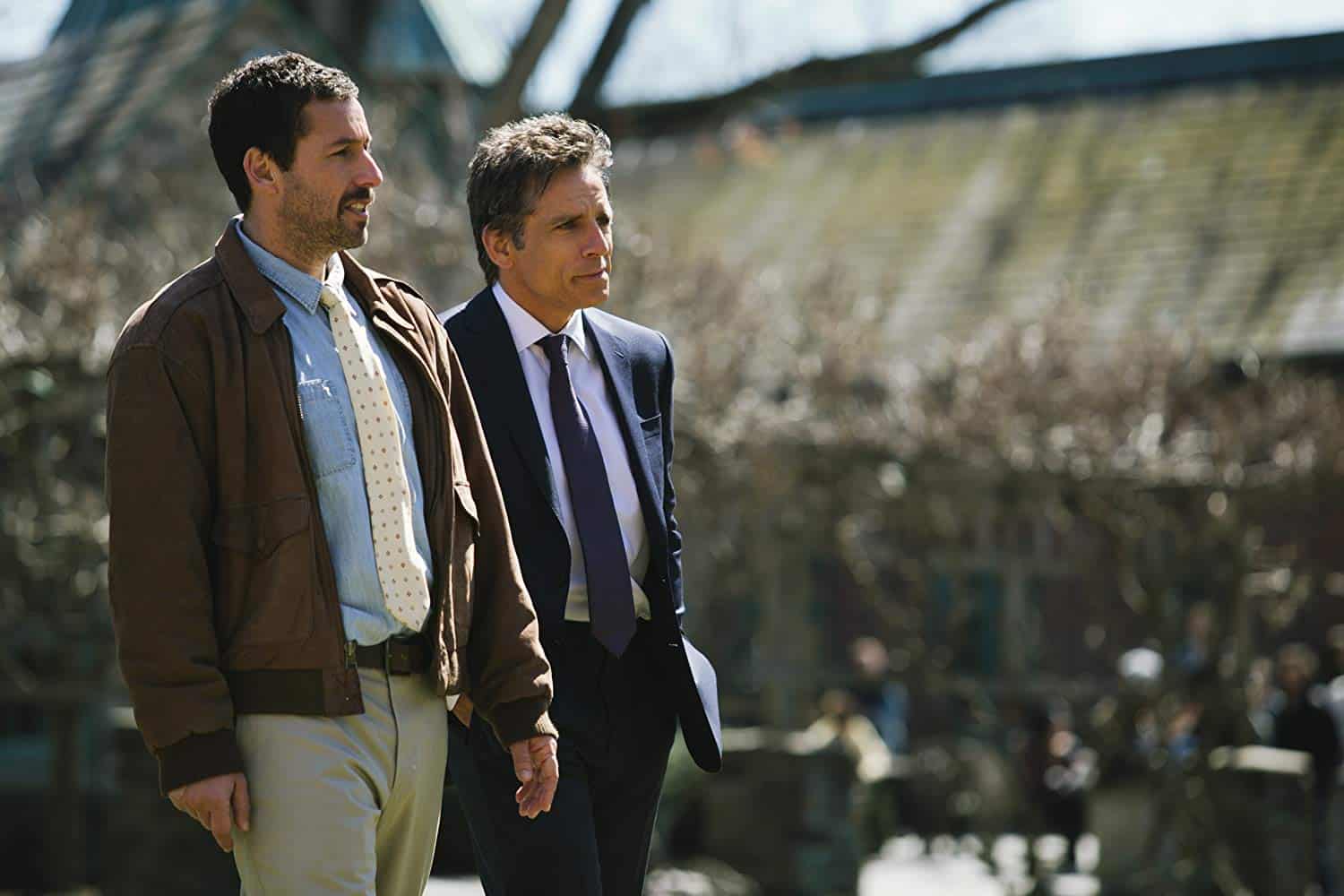
This film, like The Squid and The Whale, looks very home-like, and very approachable. The luscious greens and golds of the cinematography, the orange glow of street lamps, and the beautiful piano only score by Randy Newman paint a beautiful picture of this crumbling family. The performances are all terrific, especially Sandler’s Danny who really couldn’t be played by anyone else here. He nails the character, he feels so natural and lived in – every line and reaction feels full of subtext.
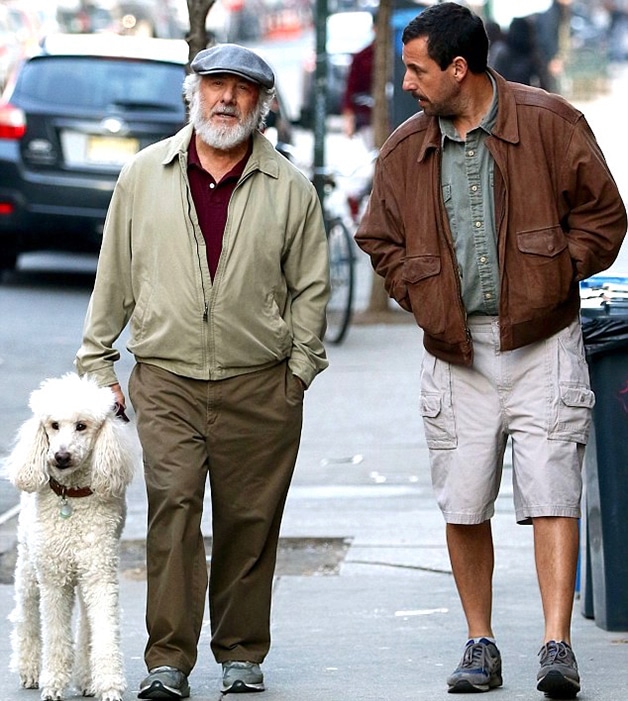
Speaking of subtext, this might be Baumbach’s best written film. It’s so beautiful to see words work the way they do in real life, on screen, but without any of the awkwardness of real-life interaction. This film is pretence after pretence, every line meaning something other than what is being said, but they all flow so naturally that you don’t even notice you’re watching two conversations at once until you’ve already done so. It’s near perfect, but one film is better.
1. Marriage Story
Marriage Story is the film of the year, and the film of Baumbach’s career. The dialogue is so sharp and biting, it doesn’t feel like his usual cute, quippy banter, it feels mean, tough, and like it has somewhere to go, so you better get on board, because it’s not waiting for you. Baumbach nails every beat of this film, he directs every second of it to perfection, stuffing it full of call-backs and setups that pay off perfectly. He shoves humour where there should be none and sadness in all the corners of the film you weren’t expecting to stand out.

The little moments are a cacophony of emotion that feels so real and authentic that you feel bad for watching. The performances are a career best for both Driver and Johanson, who both let the audience in while in addition, both being rather unlikeable in some ways, though also rather loveable in others. You can’t pick a side in this divorce, and by the end of the film you’ll feel as torn apart as they do throughout. It ropes you in and wont let go till the end of its immaculately paced run time.
Follow me on Twitter and Instagram.
If you liked this, please read our other reviews here and don’t forget to follow us on Twitter or Instagram or like us on Facebook.
Discover more from
Subscribe to get the latest posts sent to your email.
